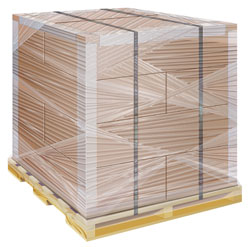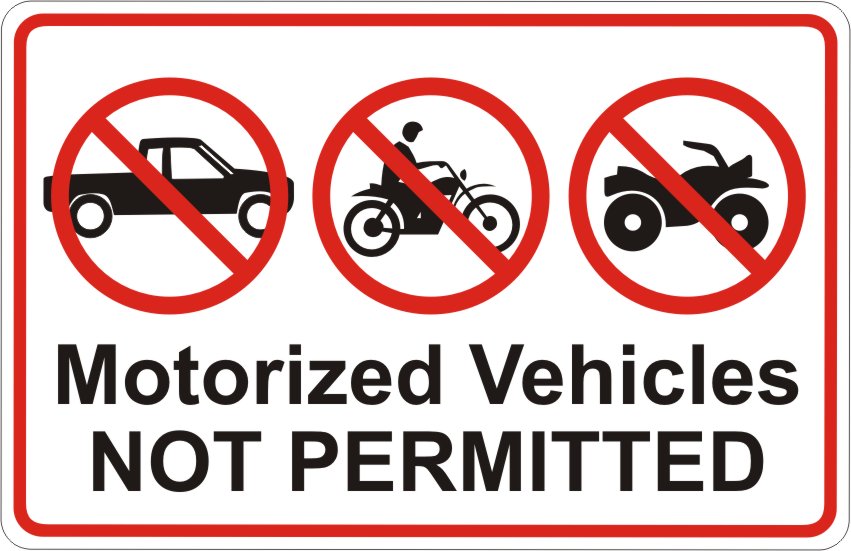Shipping Goods from the USA utilizing LCL freight
What Is LCL (Less than Container Load)?
If you plan to ship goods from the USA abroad, but don’t have enough to fill an entire container, LCL - short for Less than Container Load - is one of the most practical and affordable global transportation options available. It’s designed for shippers who need to move goods overseas without the high cost of booking a full container.
With LCL, you share space in a 40-foot container with other exporters. You only pay for the space your load occupies, which can significantly reduce your international shipping costs. You can use our online freight calculator to obtain accurate pricing for exporting goods from the United States.
In the context of sea freight, LCL means your goods are:
- Consolidated at a Container Freight Station (CFS) - a warehouse that operates under U.S. Customs supervision.
- Your cargo is grouped with shipments from other customers.
- It is loaded into a 40-foot container and shipped overseas.
- After being transported overseas by a global carrier, the container is unpacked at a destination CFS, deconsolidated, and the shippers' goods are ready for release to the recipients (consignees).

This process is dispatched by a licensed international shipping company - a U.S. Freight Forwarder, which coordinates every step until your goods depart from the United States. It’s a professional solution used by both businesses and individuals who want to ship a load overseas without the full-container expense.
If you don’t have enough goods to justify a 40-foot container, using LCL service is a smart, reliable, and cost-effective way to ship. It allows you to benefit from the same global transport infrastructure used by large-volume shippers, but at a fraction of the price, making it ideal for anyone seeking affordable international shipping handled by an experienced global cargo transportation company.
When Should You Consider Using LCL?
If you're planning to send commercial commodities or move household goods and personal items from the USA overseas, LCL can be a smart and affordable export option, especially if you want to avoid the expenses associated with hiring a full-service international moving company.
Many customers looking into moving goods overseas ask: What are the pros and cons of using LCL? While there are different methods of cargo transportation, this section focuses specifically on sea freight.
One of the first questions to consider is:
Is your shipment too small or too large for LCL?
Generally, LCL is a suitable option for items larger than 0.2 to 0.3 cubic meters, which is approximately 7 to 10 cubic feet. If you're sending just a few small boxes, it may be better to use a parcel service like USPS, FedEx, or DHL, which is designed for packages and envelopes.
Not sure what a cubic meter looks like? It can be hard to visualize. That’s why we recommend checking out the video on YouTube or the picture below that shows how many typical boxes, both small and large, can fit into one cubic meter. Seeing that space in context can help you estimate whether LCL is suitable for your shipment.

The picture below shows how many small and large boxes fit into one cubic meter.

Another common question is:
How much does it cost per pound or kilo?
The answer might surprise you: LCL freight rates are not based on weight. When you self-deliver your load to a sea carrier's terminal (CFS), the international shipping cost is based entirely on volume, not weight.
LCL freight rates are calculated based on the volume, measured in cubic meters or feet. This means the weight of your shipment usually doesn’t matter, unless it's exceptionally heavy or dense. That said, there is always a minimum charge, typically equal to the price to ship one cubic meter (roughly 35 cubic feet).
Now, what if your shipment is much larger?
If your shipment can fill an entire 20- or 40-foot container, you may want to explore FCL (Full Container Load). However, keep in mind that FCL comes with additional responsibilities. The shipper is fully responsible for loading and securing all items inside the container, as well as handling the pickup and return of the container at both the origin and destination.
In fact, steamship lines place strict rules on every stage of an FCL shipment—container pickup, loading, transport, delivery, and timely return. Missing any deadline can lead to penalties, which are the shipper's responsibility.
Unless you're experienced with container logistics, even shipments as large as 20 to 25 cubic meters may still be a better fit for Less-than-Container Load (LCL) services. In those cases, you're better off working with a professional company that can handle consolidation and coordination for you, without the stress and cost of full-container logistics.
So, before committing to FCL, take a moment to reassess your volume. If your shipment falls below full-container levels, LCL may still be the more affordable international shipping option, especially when exporting from the U.S. with the help of a reliable global cargo transportation company.
Let’s examine the benefits of LCL for shippers.
LCL is an affordable international shipping solution.
If your load fits LCL, the freight cost is significantly reduced compared to other global cargo transportation modes.
- If you ship goods from the United States in boxes, crates, or pallets in a container and share the container with other exporters, you pay only for the space occupied by the goods, not the entire container. It is definitely much less expensive than sending a whole container.
- Since vessels are not limited by weight but by the volume capacity of ships, then, as already mentioned above, for general commodities, freight rates are calculated by the overall volume, not by the weight. In other words, with LCL, most of the time, you may ignore the weight of the cargo. In LCL, freight rates are typically based on the overall volume in cubic meters or cubic feet.
- With LCL, you may save on U.S. domestic transportation. You can self-deliver your load to a sea carrier's terminal (CFS). All your stuff may easily fit into a rented truck. In this case, you eliminate all the expenses related to delivery to the CFS. The costs of cargo transportation within the United States are relatively high. Suppose you order a pickup for further transit abroad. In that case, the cost of delivery to a CFS may even exceed the price of the ocean freight in your total international shipping cost.
LCL offers a more convenient and flexible way to ship cargo from the U.S. compared to other modes of transportation.
-
When you deliver your loose boxes to an ocean carrier terminal (CFS), you can request that the CFS properly palletize and shrink-wrap all or part of your items into one or more skids. Palletizing your boxes at the CFS ensures your goods are safe for global transportation. Handling small boxes during cargo delivery is much more convenient than dealing with heavy pallets. You may request that CFS palletize small boxes and ask that larger items be shipped loose. By separating large items from pallets, you can reduce your international shipping costs by minimizing the chargeable volume related to palletizing.
-
If your load fits into a 40-foot container that can be handled with forklifts, you can ship boxes, crates, and pallets of any size and form. If you ship goods from the U.S. with LCL, then pay attention to the internal dimensions of a standard 40-foot dry container, which are:
Length - 39'5" = 12 meters
Width - 7'5" = 2.35 meters
Height - 7'10" = 2.39 meters
-
If you are involved in global cargo transportation, you must consider restrictions on wood-packing materials, commonly known as ISPM15 rules. Cardboard boxes comply with the ISPM15 regulations. Then, you can pack and ship your goods in cardboard boxes purchased at Walmart, U-Haul, Office Depot, etc. You may shop around for heavy-duty cardboard boxes to protect your goods. In global cargo transportation from the USA, we recommend heavy-duty cardboard boxes, but they are not absolutely necessary. You will palletize your boxes on ISPM15-certified or plastic pallets.
-
Suppose you deliver your loose cardboard boxes to a CFS. In that case, the CFS should properly palletize and shrink-wrap the boxes for the fee of $35-50 per pallet, including the cost of certified pallets. Use this opportunity. Do not palletize boxes by yourself. Just deliver the easy-transporting boxes to the CFS and leave the palletizing to professionals. In addition to the fact that loose boxes are much easier to handle, the most important thing is that you're taking off all responsibility for ISPM15 compliance and transferring the commitment to the CFS company. Your shipment should not encounter any problems related to ISPM 15 during transportation from the U.S. to the destination. Suppose you ship goods to Oceania, particularly to Australia or New Zealand. In that case, you must read about fumigation requirements for shipping from the USA to Australia and New Zealand.

However, there are restrictions on LCL. Certain conditions apply to all freight, regardless of the mode of global cargo transportation, and some are specifically related to the use of the LCL service.
These are the most common restrictions in LCL that shippers should be aware of:
Avoid food products, wine, or drugs. Exporting food products from the United States, including wine, liquor, pharmaceuticals, edible animal byproducts, and supplements, is subject to special regulations in the U.S. and destination countries. Violations of such rules may result in detention, confiscation, or destruction. Additionally, it may result in fines and even criminal charges. Consigners and consignees are responsible for providing proper documentation, permits, and any other necessary information. The consigner and consignee cover all incurred costs.
To simplify the process, when packing your goods for transportation from the U.S., avoid including any items considered dangerous or prohibited when sending a parcel to your local USPS office. Just stay away from the following items:
-
Perishable food products and alcohol
-
Live animals, plants, and seeds
-
Any medicines and drugs
-
Dangerous and Hazardous Goods are restricted and subject to approval and special procedures.
-
Aerosols and liquids
-
Cash, Money orders, credit, and debit cards
-
Passports and other confidential documents
-
Valuable jewelry, art, and antiques
-
Weapons of all kinds
-
Sipping Dangerous and Hazardous goods is restricted and subject to approval and special procedures.
If you pack in used boxes, erase all labels and marks, especially those relating to dangerous goods or hazardous materials.
With LCL, you cannot ship motor vehicles requiring DMV registration.
We continuously review inquiries to send various types of motor vehicles overseas from the USA by LCL. Unfortunately, any motorized vehicle requiring DMV (U.S. Department of Motor Vehicles) registration, such as automobiles, motorcycles, mopeds, ATVs, jet skis, etc., cannot ship from the USA with LCL. This is because the United States Customs does not recognize ocean carriers' terminals (CFS) as examination sites for motor vehicle inspections.
If you want to ship a motorized vehicle from the States overseas by sea, you should consider exporting it in a 20 or 40-foot container (FCL) or RO-RO, but not LCL.
However, with LCL, you can pack and ship any vehicle that does not require DMV registration, such as mini choppers, snowmobiles, golf carts, self-propelled wheelchairs, specialized construction, special mobile equipment, forklifts, etc. Always check with the DMV before you ship any vehicle from the USA overseas, regardless of the mode of transportation.
Fortunately, any legal motor parts can be shipped from the United States using less-than-container-load (LCL). The typical exception is the export of used tires from the USA.
If you ship from the U.S., motor parts containing fluids (such as engines and gas tanks) must be completely drained. Large and heavy pieces must be crated or securely attached to pallets.
Remember, if your shipment contains a battery (even a dry battery), the entire load may be considered dangerous goods. Additional documents regarding dangerous goods must be provided, and hazardous surcharges will be applied. Transportation of dangerous goods requires approval when booking. The shipper should be aware of additional requirements and charges before scheduling a shipment for international transportation from the United States.
Frequently Asked Questions (FAQ) About LCL
1. What is LCL freight?
LCL (Less than Container Load) allows multiple shippers to share space in a single container. It’s a cost-effective solution for businesses and individuals who don't have enough goods to fill an entire container, making it a smart choice for affordable international shipping.
2. How does LCL reduce prices?
With LCL, you only pay for the space occupied by your load, not the entire container. This results in a significantly lower price compared to booking a full container, especially for smaller shipments.
3. Is LCL commonly used?
Most global transportation companies that ship goods by sea offer LCL services. It’s one of the most popular methods for delivering small to medium-sized loads overseas, whether commercial commodities or household goods.
4. When is LCL the most affordable international shipping option?
LCL is the most affordable international transportation option when your total cargo volume is less than 15 cubic meters. Instead of paying for unused space in a full container, you split the container with others and pay only for your share.
5. What factors affect the price of LCL shipments?
Several factors influence your international shipping cost with LCL, including the overall chargeable volume of your shipment, the destination port, and the specific services requested (such as pickup or delivery options).
6. Are there size limits for LCL shipments with global shipping companies?
Most international shipping companies accept LCL shipments up to a certain volume or weight before recommending a full container (FCL). Booking a full container may be more economical if your cargo is 15–18 cubic meters in volume.

